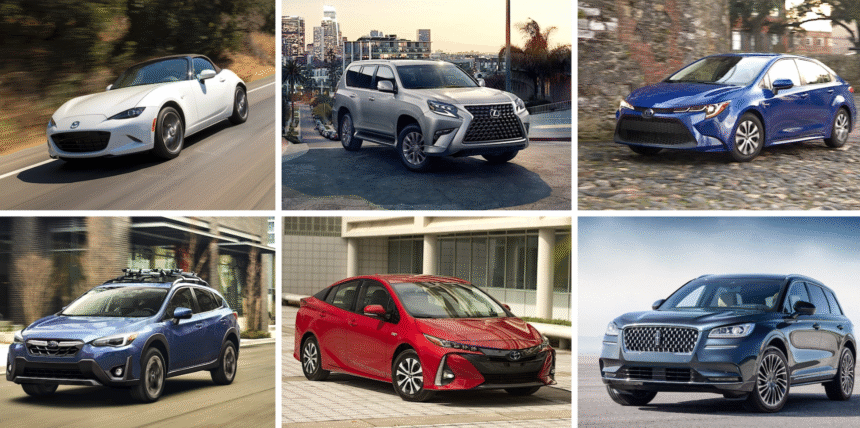By all accounts, 2025 is shaping up to be a year where value truly matters. In a market flooded with tech-laden models, fluctuating fuel prices, and shifting buyer priorities, one big question stands out: which cars actually give you the most for your money?
- Value isn’t always cheap – it’s about the long game
- So, what actually makes a car “worth it” in 2025?
- Best picks for drivers on a budget (but not willing to settle)
- Electric dreams and budget realities
- Used doesn’t mean second-best anymore
- Tech: More isn’t always better, but some features matter
- Wrapping it up (but not with a bow)
We’re not just talking sticker price here. Value means dependability over time, strong resale potential, fuel efficiency, safety, and yes – whether the ride feels like it was made for you or stitched together in a boardroom. Let’s walk through some of the best choices for drivers who want to stretch their budget without compromising on what matters most.
Value isn’t always cheap – it’s about the long game
It’s easy to think that the “best car for the money” is simply the cheapest one on the lot. But that’s a short-term play. The real winners? Cars that hold their own after five or ten years of commuting, grocery runs, road trips, and maybe even hauling your teenager’s garage band gear.
For 2025, consumer research from sources like the Insurance Institute for Highway Safety (IIHS) and the National Highway Traffic Safety Administration (NHTSA) paints a clearer picture of what real value looks like. We’re talking high safety ratings, consistent reliability reports, and fuel economy that doesn’t make your wallet cry at the pump.
You know what’s even better? Many of these cars come standard with features that used to be luxury upgrades – lane assist, automatic emergency braking, adaptive cruise control. In short, value doesn’t mean bare-bones anymore.
So, what actually makes a car “worth it” in 2025?
Let’s be honest, the auto market has gotten… complicated. Electric versus hybrid versus gas. Monthly subscription fees for seat warmers (seriously?). A lot of it feels more frustrating than exciting. That’s why we broke down the idea of value across four key points:
- Safety: 2025 models had to meet stricter federal guidelines, and the best ones go above and beyond. Top-tier crash protection is now a must, not a bonus.
- Fuel economy and energy costs: With gas prices swinging like a yo-yo and charging station access still a work in progress, efficient mileage is non-negotiable.
- Reliability: A good car shouldn’t need constant shop visits. The best picks are backed by years of real-world data.
- Total ownership cost: Think beyond the sticker – repairs, insurance, depreciation, and taxes add up fast.
Best picks for drivers on a budget (but not willing to settle)
It’s impossible to crown one universal winner – different needs, different wheels. But a few standouts check most of the boxes no matter who you are.
The practical daily driver
For folks clocking in serious commuting miles, compact and midsize sedans with hybrid options offer unbeatable value. High mileage, low maintenance, and enough tech to feel modern without overwhelming. Some of 2025’s best in this class:
- Toyota Corolla Hybrid – With its outstanding fuel economy (around 50 mpg combined), rock-solid reliability, and a surprisingly refined interior, this one consistently lands on top value lists.
- Honda Civic – Whether you opt for the standard or hybrid variant, the Civic remains a favorite thanks to agile handling, high safety scores, and strong resale value.
- Mazda3 – A bit sportier, but still practical and fuel-efficient, especially with the 2.5-liter engine. The cabin feels upscale, and it’s fun to drive without guzzling gas.
“I’ve had mine for three years now,” says Karen M., a high school teacher from Michigan. “It’s not flashy, but it gets me to work, has room for my kids’ sports gear, and I’ve barely had to touch the brakes beyond oil changes.”
The family-friendly hauler
Need space for car seats, groceries, and maybe a dog that thinks it’s human? These crossovers blend generous cabin space with decent mileage and sturdy crash ratings:
- Subaru Forester – Standard all-wheel drive, top-notch safety features, and excellent visibility make this a favorite for suburban families and mountain dwellers alike.
- Kia Sportage Hybrid – Offers nearly 40 mpg, a smooth ride, and one of the roomiest back seats in its class. It punches well above its weight in comfort and tech.
- Toyota RAV4 Hybrid – A consistent top performer in reliability and fuel economy, with strong resale value and an interior designed with practicality in mind.
Also – this part matters more than most think – if you’re planning a long-distance move or family relocation, picking a model that’s easy to ship or tow can save you a huge headache. Many families forget about vehicle transport logistics until it’s too late, so choosing a car that’s commonly shipped (and not a giant specialty vehicle) can be a small but smart factor.
The college-bound car
Whether it’s for your kid heading to college or a second car to zip around town, these budget-friendly rides offer peace of mind and surprisingly good comfort:
- Hyundai Elantra – Affordable, loaded with safety tech, and easy to maintain. The base model has all the basics, but the hybrid variant stretches your fuel dollar even further.
- Toyota Prius (used models from 2020–2023) – Still one of the most fuel-efficient and low-maintenance cars out there. Older models are especially wallet-friendly.
- Honda Fit (2020 used models) – No longer in production, but still widely available and deeply loved for its cargo space and tight turning radius.
One college student we spoke to, Diego F., summed it up perfectly: “All I needed was something that wouldn’t break, could hold my guitar and a couple duffels, and wasn’t completely embarrassing. I found it – and it even has Bluetooth. That’s a win.”
Electric dreams and budget realities
Let’s talk EVs for a sec. There’s no question electric vehicles are the future. But are they really the best deal right now?
Well… yes and no.
On one hand, federal tax credits are still in play – up to $7,500 for qualifying models, per the IRS’s clean vehicle credit page. Electricity is generally cheaper than gas. And maintenance? No oil changes, fewer moving parts – it all sounds good.
But charging infrastructure still varies wildly depending on your zip code. And while battery life has improved, some budget EVs still can’t quite match the convenience of a quick gas fill-up. That said, here are a few 2025 EVs that make the most financial sense:
- Chevrolet Bolt EUV (2023–2024 used models) – Affordable, easy to charge at home, and over 250 miles of range. Many are still under warranty and widely available.
- Nissan Leaf – Basic but effective, especially in urban areas. You’ll get decent range at a price well below many new gas-powered cars.
- Hyundai Kona Electric – Punchy acceleration, a range of over 250 miles, and one of the lowest cost-per-mile EVs in its class.
Used doesn’t mean second-best anymore
You know that old saying about new cars losing value the second you drive off the lot? Yeah – it’s still true.
With inflation bumping up prices on everything from tires to timing belts, used cars with solid maintenance records and fewer than 60,000 miles are in high demand. In fact, the Bureau of Labor Statistics recently noted that used vehicle prices are finally stabilizing after spiking during the pandemic – a small mercy for buyers on a budget.
Here are some strong used picks under $20K that offer exceptional long-term value:
- Toyota Camry (2018–2022) – Nearly bulletproof reliability and surprisingly roomy inside. Not exciting, but dependable as heck.
- Mazda CX-5 (2019–2021) – Great handling for an SUV, high safety scores, and comfortable seats for long drives.
- Honda CR-V (2018–2021) – Solid resale, decent mileage, and plenty of space for families or those constantly on the go.
Tech: More isn’t always better, but some features matter
In-car tech has come a long way. But here’s the thing – more screens and touchpads don’t always translate to better driving.
Some of the most “affordable” cars in 2025 now offer features that were once limited to luxury brands. Think adaptive headlights, rear cross-traffic alerts, and even basic autopilot-style cruise control on highways.
That said, a cluttered touchscreen that replaces your A/C knobs? That’s a downgrade, not an upgrade.
Instead, look for:
- Clear, responsive infotainment (bonus if it still has physical buttons)
- Smart safety features (especially automatic emergency braking and blind spot alerts)
- Connectivity without a monthly fee (some systems now charge for what used to be standard Bluetooth access – watch for it)
Wrapping it up (but not with a bow)
The best cars for your money in 2025 don’t necessarily shout from the rooftops. They quietly do the job – reliably, affordably, and without making your budget squirm. Whether you’re relocating your whole family across the country, planning weekend road trips, or just need to make it to work on time without mechanical drama, there’s something out there for you.
One of the underrated perks of car shopping in 2025?
You’re no longer limited to dealerships within driving distance. Thanks to platforms like Cars.com, Autotrader, CarGurus, and even government auction sites, you can now find the perfect vehicle in another state – maybe even snag a better deal – and have it shipped straight to your doorstep. Whether you’re buying from across the country or just a few states away, it’s easy to compare car shipping quotes and line up transport without ever stepping foot on a lot. It opens up way more choices, especially if local inventory is slim or overpriced.
Just remember: true value isn’t in the flash – it’s in the feel, the function, and the fact that five years from now, you’ll still be glad you bought it.















